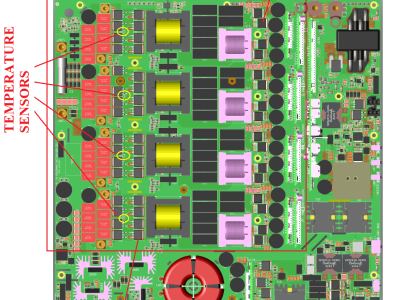
This research presents a multi-channel phase shift inductor-inductor-capacitor (LLC) resonant converter with a wide input and output voltage range that has been specially optimized for fuel cell applications. The worst-case minimum stack voltage and the battery voltage range were used to determine the optimal parameters of the LLC converter. The voltage gain of the converter operating at a constant power was considered, and an algorithm for such a calculation is proposed.
- Categories:




